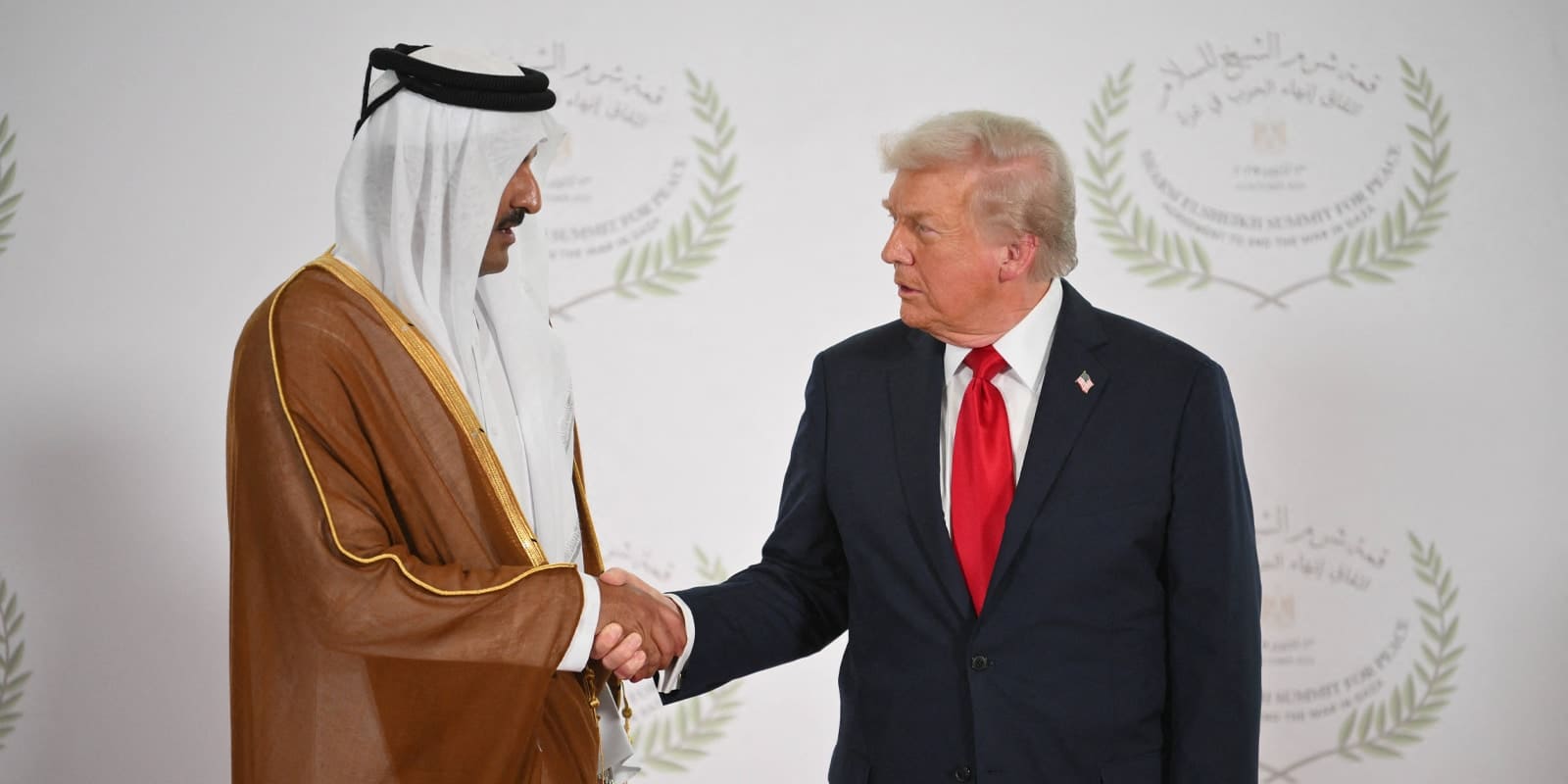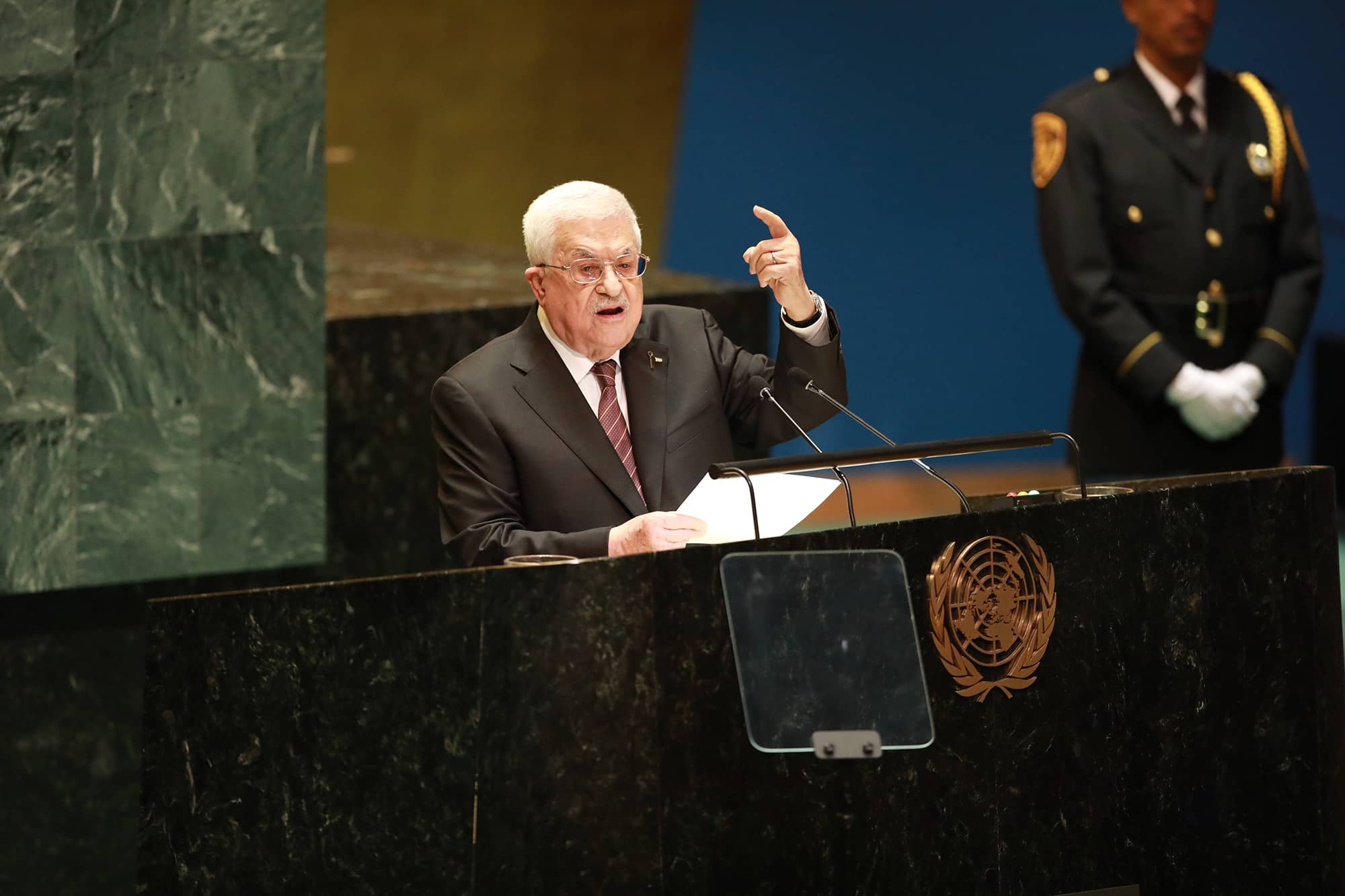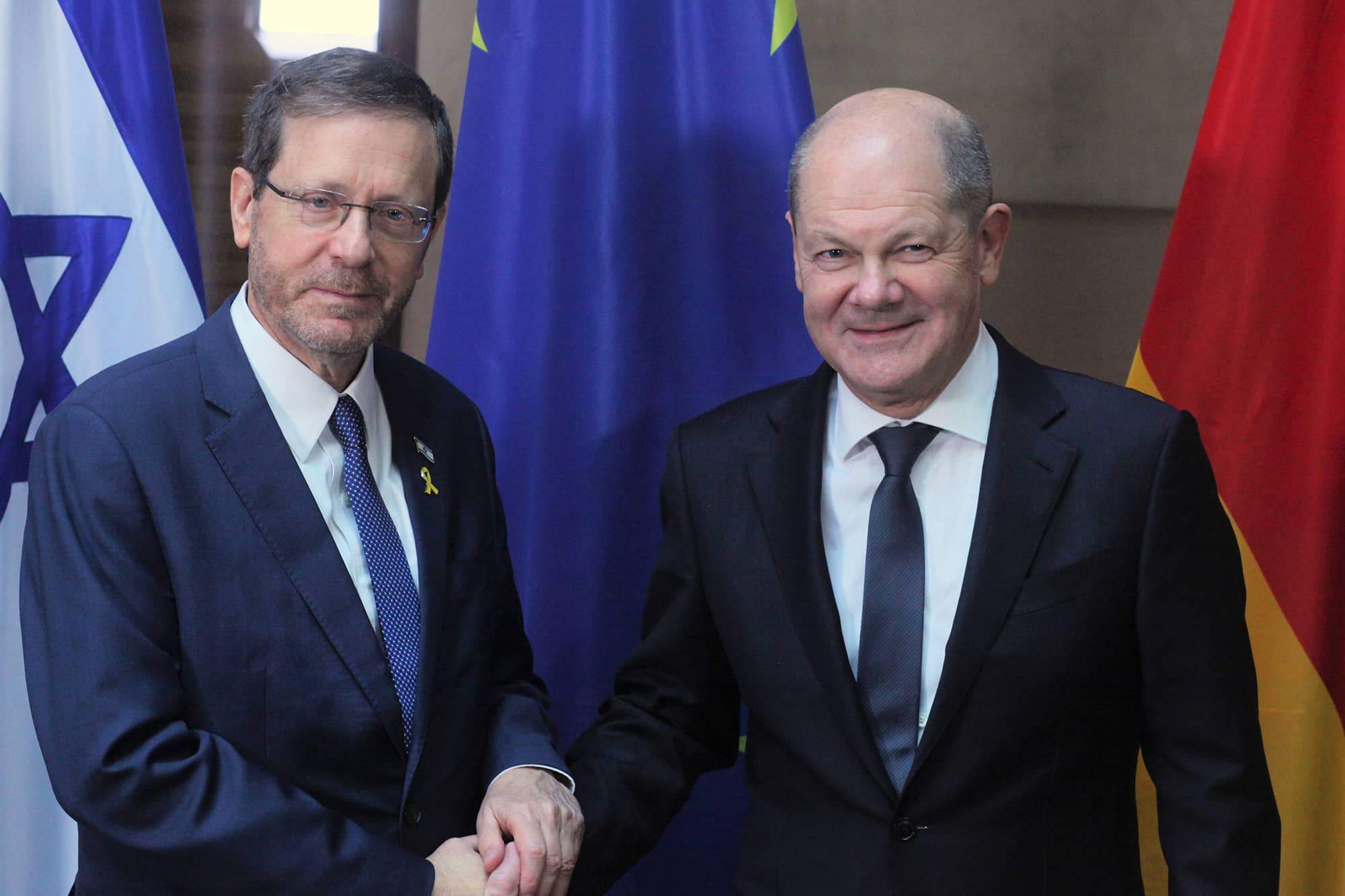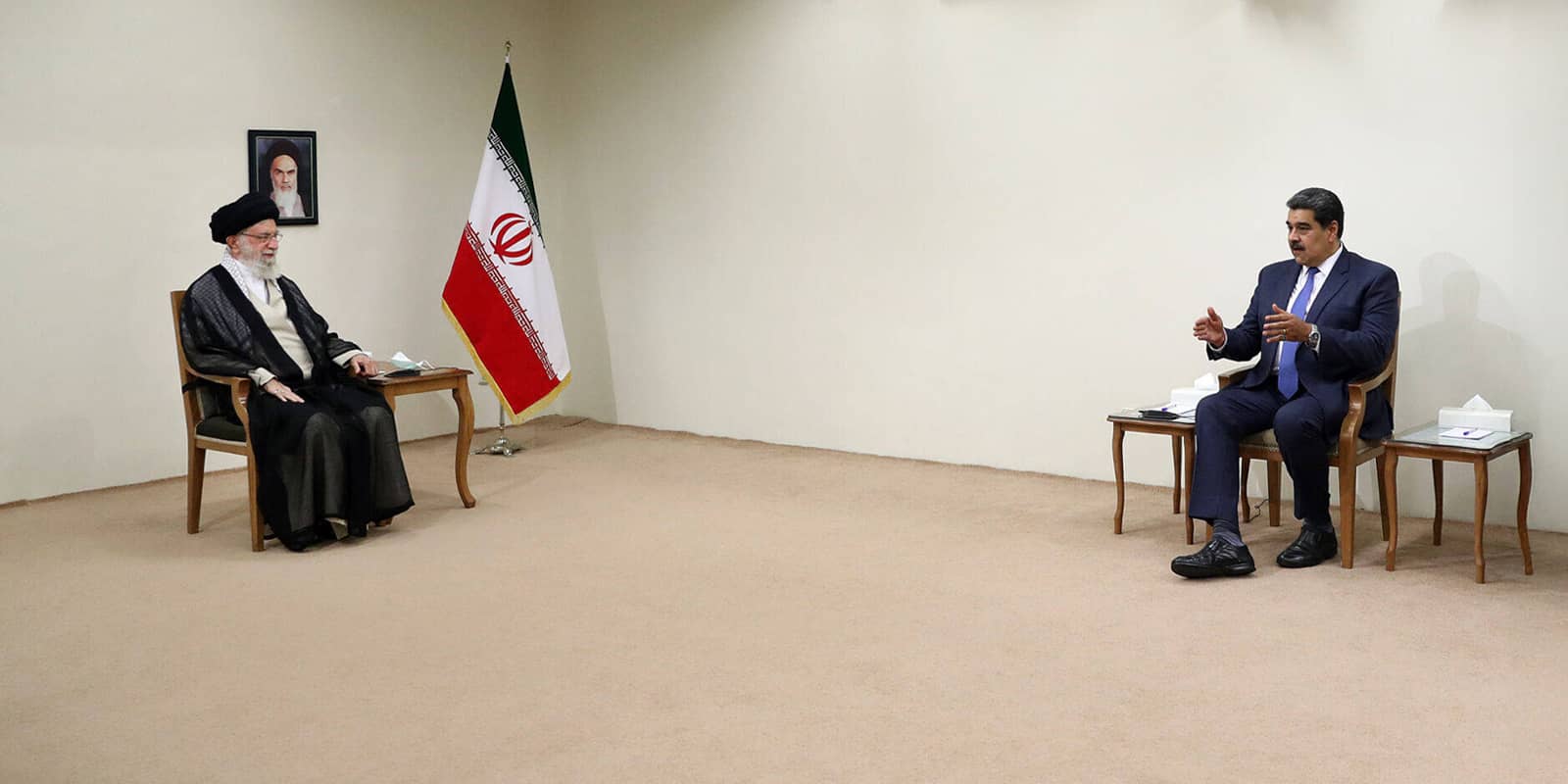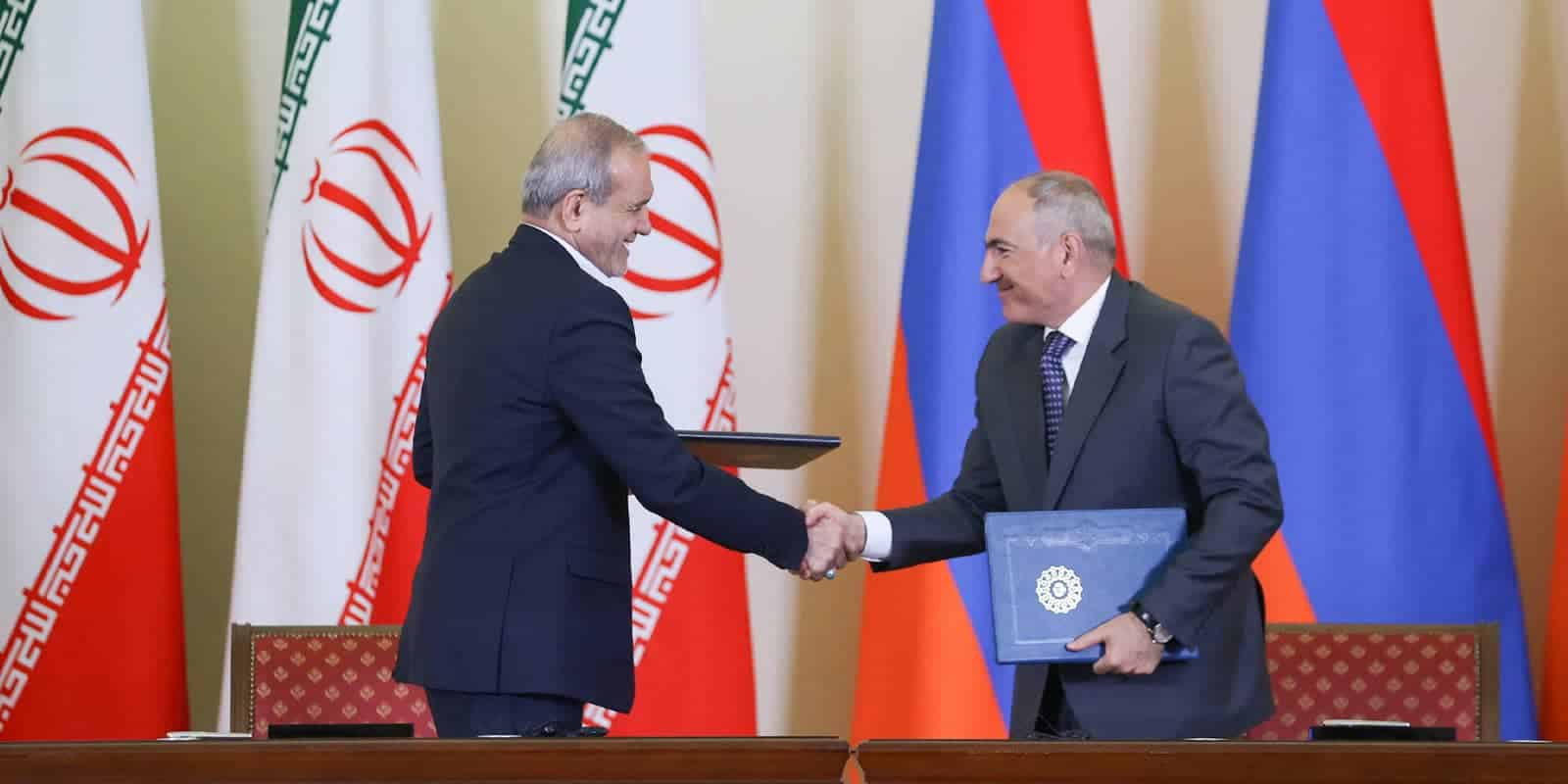Looming over the dramatic events of recent days—the ceasefire agreement between Israel and Hamas, which saw the return of all surviving and some hostages; President Donald Trump’s visit to Israel; and his signing of an agreement on his 20-point plan in Sharm el-Sheikh, notably without Israeli participation—is the shadow of the plan’s two chief sponsors, Qatar and Turkey, both identified with the radical Sunni axis.
The purpose of this article is to examine Qatar’s role in brokering the agreement, its emergence as President Trump’s “favored partner,” as reflected in a series of measures taken by the American president, and the threat this development poses to the West in general and to Israel in particular.
Since the start of the war, Qatar has served as a central mediator between the parties—a role that provided it with a kind of insurance policy against potential Israeli strikes (which were considered at various points) as well as a justification for hosting senior Hamas leaders on its soil. At the outset of the war, during a joint press conference with U.S. Secretary of State Antony Blinken, Qatar’s prime minister, Mohammed bin Abdulrahman Al Thani, explained that hosting Hamas leadership in Doha enabled communication aimed at securing hostage deals and ending the war. To appease the American side, the Qatari foreign ministry spokesman issued vague statements suggesting that at the end of the war, Qatar might consider expelling Hamas from its territory. The secretary of state’s presence at that press conference symbolized U.S. approval of Qatar’s actions—an endorsement later reflected in praise for Doha’s mediation efforts by both the Biden and Trump administrations.
Beyond the immunity Qatar believed its mediation role afforded it, the importance of that role lay in its ability to position the small gas emirate as a first-tier player, both internationally and vis-à-vis the states between which it mediated. Thus, Qatar has served as a mediator not only between Israel and Hamas but also in other arenas, including between Rwanda and Congo and between Ukraine and Russia, where it used mediation to advance its own interests.
Qatar’s role as a mediator allows it to “play on all fields” and maintain simultaneous contact with opposing sides, as seen in Doha’s relations with Kyiv regarding arms sales and with Moscow concerning energy resources. Another advantage for the Qataris lies in the dependence of major powers—chiefly the United States—on their services. In all the conflicts mentioned above, Qatar has successfully positioned itself as a promoter of American interests to such an extent that, in April 2025, the U.S. ambassador to Qatar described Doha as Washington’s default option for mediation. The ambassador has since left his post and become a founding partner in a Qatari firm, illustrating how Qatar creates interdependence between diplomatic and business ties.
Further evidence of this dynamic appeared in reports about the business dealings between Qatar and Steve Witkoff, the U.S. special envoy to the Middle East. According to The New York Times, Qatar helped Witkoff salvage his failing enterprises. Qatar’s International Media Office dismissed the report as a smear campaign intended to damage the emirate’s standing as a mediator.
In addition to these conflicts, Washington itself has made frequent use of Qatari mediation—with Iran, Venezuela and the Taliban regime in Afghanistan. Qatar mediated the release of American hostages held by the Taliban, as well as citizens of European countries such as Britain and Austria. At the same time, it promoted humanitarian initiatives in Afghanistan that helped the Taliban regime regain its footing. In other arenas too, Qatar has sought to present itself as a mediator driven by humanitarian motives in a way that has gained it legitimacy and also served as a springboard for involvement in additional crises.
Consistent with this image, Qatar attaches great importance to portraying itself as a peace-seeking nation. It is therefore unsurprising that think tanks connected to the emirate promoted the Qatari prime minister’s nomination for the Nobel Peace Prize. Along similar lines, Qatar staged an exhibition titled The Road to Peace showcasing its expanding mediation activity to highlight its global reach in this sphere. The exhibition’s centerpiece was an audiovisual installation featuring the word peace in dozens of languages—Hebrew notably absent among them.
Israel’s September 9 strike in Doha marked a turning point in the struggle between Qatar and Israel for President Trump’s favor. Following the failed attack, Washington clearly sided with Qatar, which demanded an Israeli apology. Under American pressure, Prime Minister Netanyahu eventually offered his apology in a phone call from the White House to Qatari Prime Minister Mohammed bin Abdulrahman Al Thani and pledged not to violate Qatari sovereignty again. A Qatari representative of the emir, Ali Al-Thawadi, was present in the room during the call, and photos of the conversation were released to the media.
A public Israeli apology was the condition set by Qatar for resuming its mediation between Israel and Hamas over the hostage issue, even though Doha never formally announced its withdrawal from the process and continued to hold frequent talks with both Hamas and U.S. officials. It is noteworthy, however, that the text of the apology included criticism of Qatar’s conduct—“from support for the Muslim Brotherhood to how Israel is portrayed on Al Jazeera to support for anti-Israel sentiment on college campuses.” Israel also agreed to President Trump’s initiative to establish a trilateral working group to address the sides’ mutual grievances, though no progress has since been reported.
Long before the Israeli strike, Qatar had already been active in diplomatic and legal moves against Israel, including its involvement in South Africa’s case at the International Court of Justice in The Hague. After the strike, however, Doha shifted its focus to a combined diplomatic, legal, and public campaign to isolate Israel. Qatar pressed the United Arab Emirates to sever ties with Israel and sought to project Arab unity against it.
The attack indeed sent shock waves through moderate Arab states, which, despite nearly two years of war and intense domestic pressure, did not downgrade their diplomatic representation in Israel—and in some cases even deepened trade and military cooperation. At the Arab-Islamic emergency summit in Doha on September 15, no operative decisions were adopted, but Egypt warned that Israeli actions “undermine any prospect for new peace agreements and erode existing ones, with potentially grave consequences.”
The summit’s closing statement included a call for countries maintaining relations with Israel “to reconsider their ties.” Similarly, the Gulf Cooperation Council declared that “the continuation of Israeli aggression undermines the future of understandings and agreements with Israel.” Saudi Crown Prince Mohammed bin Salman, in a speech before the Saudi parliament, condemned the strike and called for urgent Arab, Islamic, and international action to confront it, including global measures to stop “the occupation authorities” from continuing their “destabilizing practices.”
These messages reflected the regional shock caused by the strike and the warning that Israel could be made to pay with a freeze in the painstaking normalization process and derailment of prospects for a future agreement with Saudi Arabia. The Emirati response differed slightly: the UAE president paid a solo visit ahead of the summit but did not attend the Doha meeting itself—a gesture that did not blunt Abu Dhabi’s sharp condemnation. Nevertheless, once the initial anger subsided, official relations with Israel were not damaged.
Regionally, the Israeli strike in Doha was perceived as crossing a red line and destabilizing the arena. Internationally, Qatar succeeded in prompting a condemnation from the UN Security Council that even included U.S. support—conditional on Israel’s name not being mentioned. Qatar’s minister of state for foreign affairs, Mohammed bin Abdulaziz Al-Khulaifi, emphasized his country’s commitment to international law, the defense of its sovereignty, and the protection of its rights through legitimate means, describing the Israeli attack as a grave violation of international law and conventions. Qatar once again cast itself as a country pursuing a peaceful path and thus reinforced its façade of legitimacy.
President Trump subsequently granted Qatar unprecedented U.S. security guarantees through an extraordinary executive order declaring that any armed attack on Qatar would be considered a threat to U.S. peace and security, and that the United States would take all necessary diplomatic, economic, and—if required—military measures to defend it. No other state in the region has received such an assurance without a formal treaty.
By comparison, Saudi Arabia had for years sought a similar U.S. defense commitment as part of talks over normalization with Israel—without success. This step went far beyond Washington’s standard pledges to its allies. Even the “Major Non-NATO Ally” status awarded to Qatar by the Biden administration in 2022 did not provide automatic defense guarantees. Now, Doha effectively enjoys a de facto promise of U.S. protection, though not necessarily by military means.
While from a legal perspective the order is declarative and subject to revocation by future presidents, it nonetheless sends a clear deterrent message against further Israeli (or Iranian) attacks on Qatari soil. Israel, in effect, has been constrained from again striking Hamas leadership sheltered in Qatar.
Another sign of Washington’s favor was the visit of Qatar’s defense minister—known for his support of Hamas—to meet with the U.S. secretary of defense, during which the two signed an agreement to build training facilities for Qatari pilots in the United States (in Idaho). The accord appears to expand a framework originally agreed upon in 2017, evidently as an additional gesture to appease Doha.
In recent weeks, the tug-of-war over President Trump’s favor has continued. Together with Turkey, Qatar succeeded in bringing Hamas to negotiate on Trump’s 20-point plan and ultimately to give conditional approval to the deal and to the release of hostages. Yet, as previous reports indicate, it remains unclear whether Doha’s promise to “pressure” Hamas was fully realized—or whether, alongside such pressure, Qatar also assured the organization that it would navigate its relations with the Trump administration to protect Hamas’s interests.
Regarding Gaza’s reconstruction, an American-Israeli plan had been formulated early in the war, envisioning a multinational civil administration—under the supervision of Egypt, Jordan, the UAE, and the United States—that would govern Gaza after Hamas, with no Qatari involvement. By July 2025, however, Israel was compelled to allow Doha a role in the Strip.
The Qataris appear determined to secure a leading position in Gaza’s rebuilding and have already expressed willingness to contribute billions toward reconstructing homes and infrastructure destroyed in the fighting. During the war, Qatar was already active through its charity foundation and the Education Above All foundation headed by the emir’s mother, Sheikha Moza, which ran the Al-Fakhoura educational initiative in Gaza. In practice, Qatar is expected to finance most of the reconstruction. Since Washington views Doha not as part of the problem but as part of the solution—and as an indispensable partner in peace efforts—it seems inevitable that Qatar will play a central role in Gaza’s rehabilitation.
Yet Qatar, which publicly claims to promote regional stability, continues to assist Islamist terrorist organizations behind the scenes, providing them with diplomatic and media support. As early as May 2021, immediately after Operation Guardian of the Walls, Hamas political bureau chief Ismail Haniyeh informed Hamas leader Yahya Sinwar of his meeting with the emir of Qatar, during which they agreed on discreet Qatari financial backing for Hamas. Moreover, Qatar’s purported “humanitarian” aid through its charitable associations has repeatedly proven to be a cover for terrorist financing, including in Gaza.
Qatar also blamed Israel for the events of October 7. Throughout the war, Qatari outlets such as Al-Jazeera and Al-Araby functioned as instruments serving Hamas. Al-Jazeera journalists worked on behalf of Hamas and some even held hostages and produced the macabre spectacles that accompanied the release of Israeli captives. Qatar’s minister of education—and the emir’s mother—praised Sinwar, Mohammed Deif, and other terrorists, while members of the Qatari Shura Council even declared that the events of October 7 were merely a “preview.”
Given all this, it is reasonable to assume that Qatar will continue working to strengthen Hamas’s power, doing so discreetly and under the Trump administration’s nose whenever possible. Therefore, since Qatar’s future involvement in Gaza’s reconstruction is now effectively a fait accompli, strict oversight will be required to ensure that the funds flowing from Doha to Gaza are directed solely toward civilian reconstruction—and not toward the military rehabilitation of Hamas.
JISS Policy Papers are published through the generosity of the Greg Rosshandler Family.

